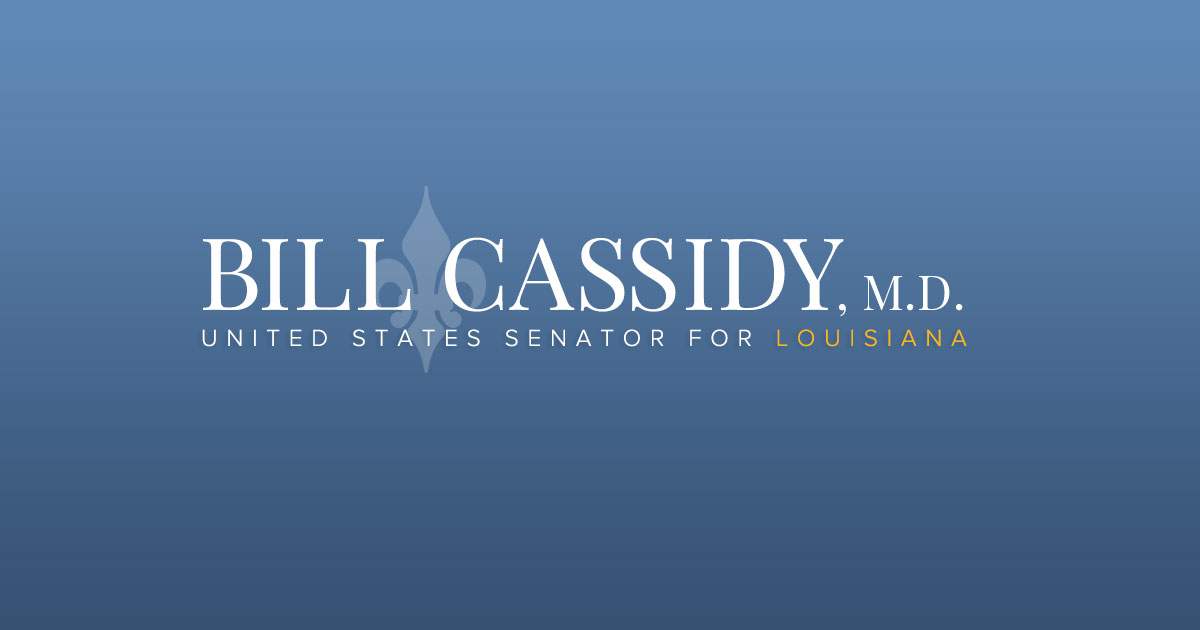Source: United States Senator for Louisiana Bill Cassidy
WASHINGTON – U.S. Senators Bill Cassidy, M.D. (R-LA), Marsha Blackburn (R-TN), Catherine Cortez Masto (D-NV), and Maggie Hassan (D-NH) are requesting feedback from the trade community as Congress looks to update U.S. customs laws and ensure the U.S. remains a global trade leader.
“There is a need to continue to modernize U.S. customs laws to ensure the U.S. remains a leader in global trade. As Congress looks to update U.S. customs laws and help advance the U.S. Customs and Border Protection’s 21st Century Customs Framework, we welcome input on how to best promote effective trade facilitation,” wrote the senators.
“There are several parts of U.S. customs law that may require updates, and changes to promote trade facilitation should be a key part of that reform, while security must also necessarily remain part of the consideration,” continued the senators.
Read the full letter here or below:
To Whom It May Concern:
International trade has dramatically transformed over the past two decades, and continues to evolve as global markets emerge and develop in conjunction with the evolution of e-commerce and other technological innovations. There is a need to continue to modernize U.S. customs laws to ensure the U.S. remains a leader in global trade. As Congress looks to update U.S. customs laws and help advance the U.S. Customs and Border Protection’s 21st Century Customs Framework, we welcome input on how to best promote effective trade facilitation.
There are several parts of U.S. customs law that may require updates, and changes to promote trade facilitation should be a key part of that reform, while security must also necessarily remain part of the consideration. U.S. trade volumes grew substantially over the past few decades, topping $3 trillion per year, with over 2 million low value shipments entering the U.S. daily. Minimizing disruptions in our supply chains and creating more efficient processes to streamline the movement of legal goods and services across borders would benefit consumers, businesses, and the government. Improving trade facilitation should reduce burdens and costs while maintaining safety and security.
As Congress deliberates updating our U.S. customs laws, we request feedback from the trade community. We appreciate your responses to the following questions:
- Improving trade facilitation should help increase the flow of legal goods and services across borders while reducing red-tape and driving down costs.
- What current barriers and challenges does the trade community face as it relates to trade facilitation?
- In detail, can you describe what improvements would be most effective? Also, it would helpful to outline any information or views you have relating to—
- i. Eliminating redundant data requirements for entry of merchandise;
- ii. Improving the Automated Commercial Environment to better implement the “single window;”
- iii. Facilitating data transmission by parties as it develops in the supply chain.
- Key security programs not only enhance homeland and global security, they also provide commercial benefits for active partners. Are there ways you believe the following programs could be enhanced to improve trade facilitation and security?
- the Customs Trade Partnership Against Terrorism; and
- pre-clearance programs at foreign ports.
- As Congress deliberates updates to U.S. customs laws, how can we strike the appropriate balance between security/enforcement and trade facilitation?
- Please explain what economic benefits you would expect to see from suggested improvements for trade facilitation.
Detailed answers to the questions above will help inform Congress as we consider updating U.S. customs laws. Please send responses to Gary_Haglund@cassidy.senate.gov by July 11th, 2023. We look forward to reviewing your submissions.
###
